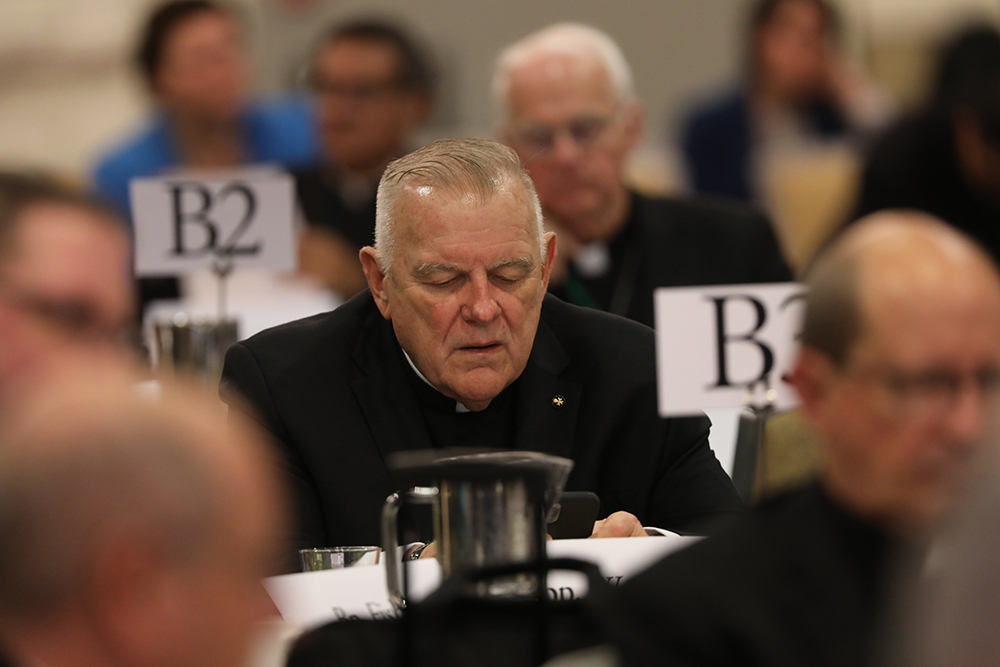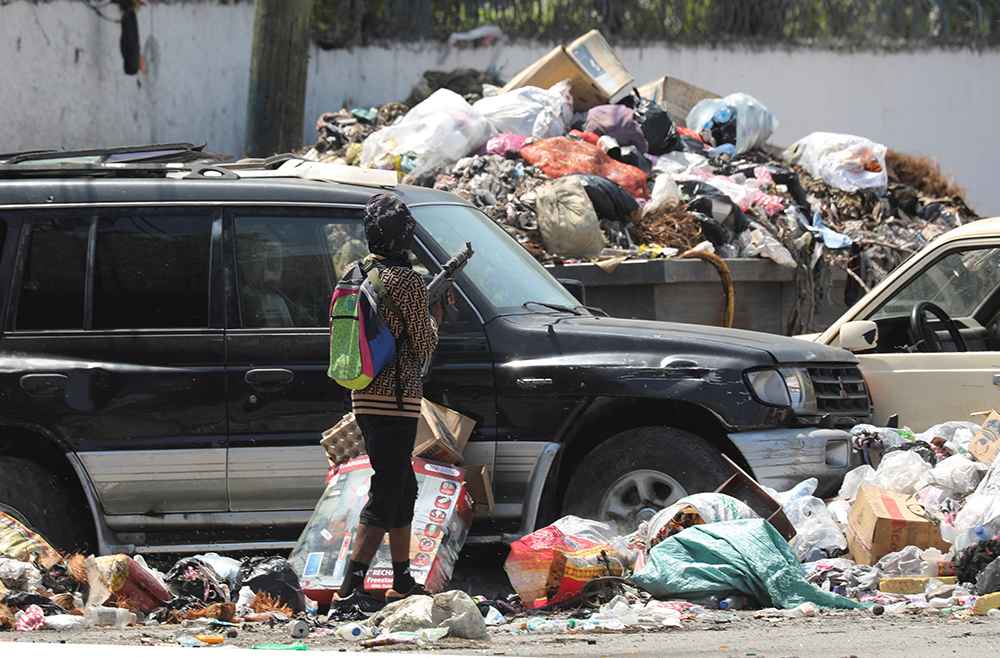
PROSPECT HEIGHTS — In response to Florida Gov. Ron DeSantis’ deploying hundreds of additional officers and soldiers to the state’s southern coast to “protect” against Haitian migrants, Archbishop Thomas Wenski of Miami says “Haitians are not an ‘invasive species,’ and shouldn’t be treated as such.”
The archbishop also pushed back on the idea that an influx of Haitian migrants is imminent.
“Actually, in the last year the United States admitted some 100,000 Haitians, Nicaraguans, Venezuelans, and Cubans under a special program that gave them work permits for two years if they had a sponsor who also paid for their ticket, so the ‘feared’ influx has begun long ago,” Archbishop Wenski told The Tablet March 13.
DeSantis announced his decision in a March 13 statement, citing the circumstances in Haiti.
“Given the circumstances in Haiti, I have directed the Division of Emergency Management, the Florida State Guard, and the state law enforcement agencies to deploy over 250 additional officers and soldiers and over a dozen air and sea craft to the southern coast of Florida to protect our state,” DeSantis said.
“No state has done more to supplement the (under-resourced) U.S. Coast Guard’s interdiction efforts; we cannot have illegal aliens coming to Florida,” the governor continued.

The tumultuous situation in the Caribbean nation has boiled over in recent weeks. At present, gangs control 80% of the nation’s capital, Port-au-Prince, as they demand new political leadership and a voice in the future. As a result, the city’s airport is closed.
Amid the turmoil, Prime Minister Ariel Henry announced on March 12 that he would resign from his post once a transitional presidential council is created. It’s a move that Archbishop Wenski said is important from the standpoint that Henry has very little legitimacy among the Haitian people. On the other hand, with the control the gangs have, there’s also great uncertainty with what happens next.
“In one way you could almost say good riddance. However, in another way, the situation has become much more complicated and basically some of the leaders of the gangs are basically posturing to turn themselves into politicians, which is not unheard of in other countries,” Archbishop Wenski told The Tablet. “The question now is how do they get out of this with the best solution?”
Archbishop Wenski, who has had a close relationship to Haiti — both the Church and people — for decades, said that before Haitian Bishop Pierre-André Dumas of Anse-à-Veau and Miragoâne was severely burned in a Feb. 18 explosion he was very vocal that Henry should resign, and told Henry as much when they met. Bishop Dumas is now in stable condition, recovering at Jackson Memorial Hospital in Miami.
Henry was appointed to his post in 2021 by then-president Jovenel Moïse, who was assassinated days later. Following the assassination, Henry was never formally sworn into his role, and still has never officially been installed. Henry assumed the post anyway, promising to restore order and hold presidential elections.
Almost three years later, there is less order and no elections have been held.
Msgr. Pierre-André Pierre, the director of the National Center of the Haitian Apostolate in the United States, told The Tablet that the international community, particularly the United States, must help Haiti work toward peace and stability. He noted also that even with the resignation of the prime minister, there is still violence and instability, and “the whole situation has not changed.”
“In such a difficult time no one should be left by himself, and it is important that we count on the international community,” Msgr. Pierre said. “It’s important that in times of crisis that we see involvement of the nations, the United States of America, because there is a long history connecting the two countries.
“The connection is so that it gives us some relief to know that the country is not alone. The proximity, that kind of connection, to show love, is something very, very important to the Haitian community,” Msgr. Pierre continued. “To bring solidarity, to show love, and to show support, to take the people out of isolation and to give that kind of relief.”
On March 11, U.S. Secretary of State Anthony Blinken announced the United States would provide $100 million to finance the deployment of a multinational force to Haiti to try and stop the nation’s crisis, and another $33 million to provide humanitarian aid and to help move along a political transition. However, some Haitian leaders rejected the political transition plan on March 13.
Archbishop Wenski noted, however, that many people in Haiti, including a prominent gang leader, have spoken out about how they are not going to let the United States — or any other country — decide who their next leader is going to be, which makes the situation “very delicate.” Henry, for example, was backed by the United States, as well as other notable countries like Canada and France.
“That’s the big question,” Archbishop Wenski said of how the international community should be involved. “Because usually foreign interventions end up causing more harm than good in the past.”
Beyond government assistance, there’s another kind of international assistance that Msgr. Pierre said is vital, that is, people showing their support through both prayers, and continuing the financial support that many of them already provide to family members and others back home. He said it all helps the Haitian people persevere, as they hope for peace.
“They want peace. It is security they are looking for. It is ultimately a state of law that they want to have, that they want to build, taking charge of the country itself,” Msgr. Pierre said. “What we need is a normalcy, to see the country, to see the people being at peace and the violence to be gone.”
